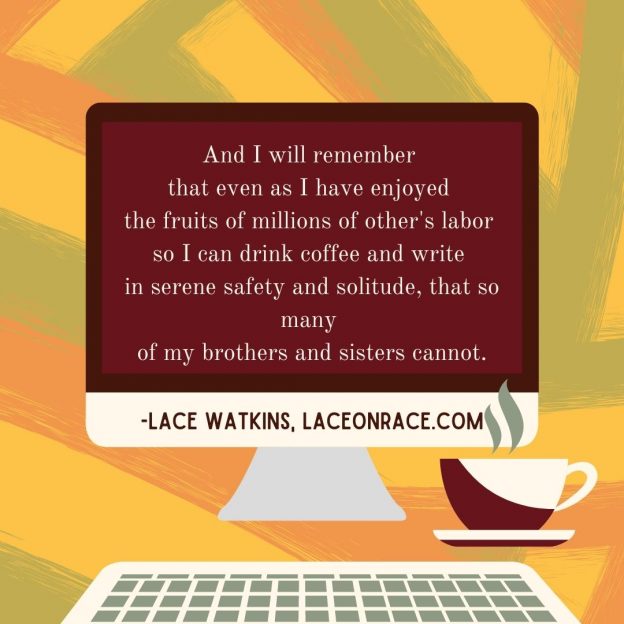For those of you who were wondering, no.
There was no way I was going to let the very first day of Black History Month go by without note.
Although I must admit to something perhaps controversial: I am of dual mind about Black History Month.
No question that I love the discrete parts; the pageants, the lectures, the music, the learning more and more about our greats (and, as the years go by, with more and more candor and accuracy), the ability to wear kente every damn day if I feel led, the pride, the promise, the honoring of our ancestors on whose shoulders we stand.
But I would be lying if I didn’t acknowledge that the month is also bittersweet, and not a little bit conflicted for me. These 28 days where we and our past are celebrated and affirmed is warming, but my contented smile slips somewhat when I remember a few things.
The most obvious of which being these: even though I love these 28 days –yes, I will eat every piece of jerk, every morsel of spoonbread; I will listen to Marion and Paul and Billie and Monk (and Glasper and Bey and Rucker and Guyton) ; I will consider my wrists which are free of shackles; I will drink from water fountains once closed to my ancestors (or, more accurately in these Covid times, I will buy a cup of coffee at a coffeeshop where my ancestors were prohibited from patronizing in a city where we were once unwelcomed); I will ride the bus and sit in the front and thank Rosa (for her decades of work before the boycott as well; she wasn’t encased in glass before Montgomery); I will think of Tikka Rose and thank God she wasn’t trained by the State to rip flesh from my leg as I protested my oppression; I will sit at a lunch counter and order and savor a sundae secure in the notion that one will not be poured on my head; I will remember not remembering being 10 days old and living through the March on Washington; I will go outside and look at my trees and marvel at the lack of Strange Fruit; I will pay my mortgage today and remember the (now unenforceable) language on the deed in my desk that prohibited Negroes from buying the land on which I write this; and then.
And then I will remember that there are also another 337 days when we are surely *not* celebrated. Where, 57 years after that march, we are still vilified; where I will remember that one of us dies at the hands of the State, with or without dogs who may or may not look like Tikka Rose, on a weekly, sometimes daily basis, where, on aggregate my Black sisters still make less than 80 percent of a white woman’s pay; where there is still redlining and ‘school choice’; where, statistically, I will die earlier and sicker; where Black children in Flint will have physical, neurological, and cognitive issues, issues for which they will later be blamed, not helped, for the rest of their truncated lives because our government cares for objects more than they care about our children; I will remember all the names (Sandra), all the names (Travon), all the names (Olango), all the names (Castile) of those no longer with us to celebrate this month.
And I will remember that even as I have enjoyed the fruits of millions of other’s labor so I can drink coffee and write in serene safety and solitude, that so many of my brothers and sisters cannot. I will remember how many of us are incarcerated–the workaround of the 13th amendment–more of us are incarcerated now in 2021 than black bodies were held in chattel slavery at any one snapshot in time in the whole of that particular Peculiar Institution, as I think about the disparities in how we handled heroin in the 70’s, and crack in the 80’s, and how we deal with meth and oxy now, (such compassion and accomodation!) and ponder the, again, obvious, I stop celebrating and start mourning.
As we do this work, we need to remember that we are making Black History right now. In fact the emphasis on history, of using the past tense, of talking about the Civil Rights era as settled history, with white people doing their darndest to put a period on issues and eras that are very much extant is a tactic and a flex.
One that I am not at all sure I want to affirm or endorse or collude with. We find ourselves in this space together; we find ourselves walking together here at Lace on Race because the work is still crucial.
And unfinished.
The past is not even the past. How will we talk about Black History Month here in this space? At the takeout window (the Facebook Page)? At the Bistro? In the Dining Rooms?
Welp.
With hopeful, but with very clear eyes.
With acknowledgement of progress made, but in the same breath, acknowledgement of the work that still needs to be done.
It is good that our now three year old community will be baptized in the waters of BHM.
But baptism in our communal mikvah is not the period at the end of a sentence.
It is a renewal, a new beginning, a new commitment to grow and change and do better, by the people we stand with, with our compatriots in this space here, and out in the world.
Black History Month, yes.
And also Black Here and Now For The Rest Of Our Lives. The only way to truly celebrate.
To the other 337 days.
With Love,
Your Lace

Leave a Reply